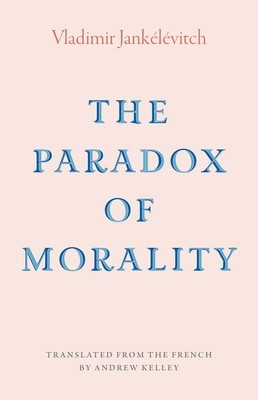
- We will send in 10–14 business days.
- Author: Vladimir Jankelevitch
- Publisher: Yale University Press
- ISBN-10: 0300269269
- ISBN-13: 9780300269260
- Format: 12.7 x 20.1 x 3.1 cm, kieti viršeliai
- Language: English
- SAVE -10% with code: EXTRA
Reviews
Description
The last work by "one of the most singular voices of twentieth-century French philosophy" (Critical Inquiry) on the complexities of love in public and private life Vladimir Jankélévitch stands alongside Emmanuel Levinas as one of the most admired French ethicists of the twentieth century, known for his work on everything from the possibility of forgiveness after the Holocaust to the philosophy of music. In his final work, The Paradox of Morality (1981), Jankélévitch turns his attention to the fundamental questions of the moral life: the struggle between egoism and self-sacrifice, the question of whether pure or infinite love exists, and moral agency in the pursuit of human rights. In dialogue with philosophers from Plato to Nietzsche, Jankélévitch proposes that the moral life comprises an acrobatic act in which we must balance the demands of love and our responsibility to the other against our natural attachment to the self. Morality is the activity of realizing and combining, in each individual action, the maximum amount of love possible with the minimum of being. This oscillation between self and other--and between being and love--is never fixed or stable. In the end, morality is not something that exists in the world of contemplation; instead, it is the substance of what must be done here and now: created anew in each new moment.EXTRA 10 % discount with code: EXTRA
The promotion ends in 22d.08:02:29
The discount code is valid when purchasing from 10 €. Discounts do not stack.
- Author: Vladimir Jankelevitch
- Publisher: Yale University Press
- ISBN-10: 0300269269
- ISBN-13: 9780300269260
- Format: 12.7 x 20.1 x 3.1 cm, kieti viršeliai
- Language: English English


Reviews